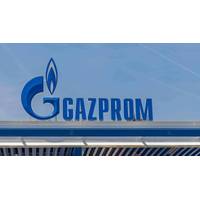EU Energy Union Quest Complicated by Contract Secrecy
Transparency would cover intergovernmental agreements; companies say commercial sensitivities could still be at stake.
* Analysts say liberalisation real route to lower prices
By Barbara Lewis
BRUSSELS, March 18 (Reuters) - A push to make gas contracts agreed with countries such as Russia more transparent has pitched Poland against Germany ahead of energy talks among European Union leaders on Thursday.
The Brussels summit is meant to advance progress towards a single energy union in which power and gas would flow freely across borders, reducing the bloc's reliance on Russian gas and countering Gazprom's divide-and-rule tendency.
But the danger is the focus will be on a clash between Germany, which has negotiated successfully with Gazprom, and Poland, which pays higher prices, EU sources say.
They said Hungary, whose nuclear contract with Russia has led to objections from EU regulators, also has reservations.
A draft prepared for the summit, seen by Reuters, calls for greater transparency on the gas market by ensuring "all agreements with external suppliers that may affect EU energy security" conform to EU law. "Confidentiality of commercially sensitive information will be safeguarded," it says.
EU sources, speaking on condition of anonymity, made clear this would relate only to intergovernmental agreements.
These have involved gas-buying by East European governments or cover pipelines between nations, such as Russia's abandoned South Stream project, whose failure was linked to its non-compliance with EU law.
There are around 40 intergovernmental contracts, compared with some 300 commercial gas-supply contracts with companies, whose terms are closely guarded.
Gazprom, which supplies about a third of EU gas, is the target of an EU antitrust investigation for allegedly overcharging customers in Eastern Europe, thwarting rival suppliers and blocking the free flow of gas.
The prices Gazprom charges are not public. Industry estimates have found Poland pays $370 per thousand cubic metres compared with $310 for Germany.
Even with commercial deals excluded, EU diplomats said Germany was opposed and that more transparency could lead to the disclosure of sensitive data.
Poland, however, has support.
Claudio de Vincenti, Italy's deputy industry minister, told reporters he favoured "an ex-ante interaction between the European Commission and member states" on energy contracts.
Other nations say EU executive involvement could lead to lower prices.
However, analyst Tim Boersma of the Brookings Institution in Washington said transparency alone would not solve the problem. "The focus should be on increasing competition, foremost by (infrastructure) investments to integrate markets," he said.
Cheaper oil, which has knock-on effects for gas prices, has improved the position of Poland's state-run PGNiG . The company is renegotiating with Gazprom, as are German utilities such as RWE.
Industry association IOGP, which represents oil and gas producers, welcomed EU diplomatic support in negotiations, but said the Commission "should not have a role in markets where contracts are agreed on a commercial basis".




